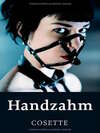Kitabı oku: «Stray Pearls: Memoirs of Margaret De Ribaumont, Viscountess of Bellaise», sayfa 17
The Abbe thereupon took one look and broke into another tempest of entreaties and vows, which Madame Darpent by this time heard. ‘M. l’Abbe,’ she said, ‘I pray you to be silent, I am no saint, but a friend, if Madame will allow me so to call myself, who has come to see her home. But Oh! Monsieur,’ she added, with the wonderful dignity that surrounded her, ‘forget not, I pray you, that what is invisible is the more real, and that the vows and resolution you have addressed to me in error are none the less registered in Heaven.’
Mocker as the Coadjutor habitually was, he stood impressed, and uttered no word to mar the effect, simply saying: ‘Madame, we thank you for the lesson you have given us! And now, I think, these ladies will be glad to close this painful scene.’
Meg, who with Madame Darpent, had satisfied herself that the wretch d’Aubepine had not hurt himself anything like as much as he deserved, declared herself ready and thankful to go away. The Abbe and Lamont both entreated that she would take some refreshment before returning home, but she shuddered, and said she could taste nothing there, and holding tight by my arm, she moved away, though we paused while Madame Darpent was kneeling down and asking the Archbishop to bless her. He did so, and her spirit seemed to have touched his lighter and gayer one, and to have made him feel what he was, for he gave the benediction with real solemnity and unaffected reverence for the old lady.
He himself handed her into the carriage, and he must greatly have respected her, for though he whispered something to her son about the grand deliverance of the victim through St. Margaret and the Dragon (an irresistible pun on the dragoon), yet excellent story as could have been made of the free-thinking Abbe on his knees to the old Frondeur’s widow, he never did make it public property. I believe that it is quite true, as my sister’s clever friend Madame de Sevigne declares, that there was always more good in Cardinal de Retz, as he now is called, than was supposed.
Poor Meg had kept up gallantly through all her terrible struggle of many hours, but when we had her safely in the carriage in the dark, she sank back like one exhausted, and only held my hand and Madame Darpent’s to her lips by turns. I wanted to ask whether she felt ill or hurt in any way, but after she had gently answered, ‘Oh, no, only so thankful, so worn out,’ Madame Darpent advised me not to agitate her by talking to her, but to let her rest. Only the kind, motherly woman wanted to know how long it was since she had eaten, and seeing the light of a little CABARET on the road, she stopped the carriage and sent her son to fetch some bread and a cup of wine.
For I should have said that M. Darpent had been obliged to return in the same carriage with us, since he could not accompany the Coadjutor on his way back. He wished to have gone outside, lest his presence should incommode our poor Meg; but it had begun to rain, and we could not consent. Nor was Meg like a Frenchwoman, to want to break out in fits the moment the strain was over.
He brought us out some galettes, as they call them, and each of us sisters had a draught of wine, which did us a great deal of good. Then we drove on in the dark as fast as we could, for the Coadjutor’s carriage had passed us while we were halting, and we wanted to enter the gates at the same time with him.
I sat beside my sister, holding her hand, as it seemed to give her a sense of safety; Madame Darpent was on her other side, Clement opposite. We kept silence, for Madame Darpent declared that no questions ought to be asked of Madame de Bellaise till the next morning.
Presently we heard an unmistakable snoring from the old lady’s corner, and soon after I felt my sister’s fingers relax and drop mine, so that I knew she slept. Then I could not but begin to tell, in the quiet and stillness, how my dear brother would thank and bless him for what he had done for us.
I am an old woman now, but I have only to shut my eyes and it all comes back on me—the dark carriage, the raindrops against the window glancing in the light of the flambeaux, the crashing of the wheels, and the steady breathing of the sleepers, while we two softly talked on, and our hearts went out to one another, so that we knew our own feelings for one another.
I think it came of talking of Eustace and his not being able to keep back, that, though Eustace was in some sort the guiding star of his life, yet what he had done for us was not merely for my brother’s sake, but for another much more unworthy, had he only known it.
Then he found he had betrayed himself, and asked my pardon, declaring that he had only meant to watch me at a distance (poor me), knowing well the vast gulf between our stations. What could I answer but that this was only French nonsense; that we knew better in England what a gentleman meant, and that I was sure that my brother would freely and joyfully give me to him, poor, broken, ruined cavalier exile as I was? And then we got hold of each other’s hands, and he called me all sorts of pretty names in French and in English; and I felt myself the proudest and happiest maiden in France, or England to boot, for was not mine the very noblest, most upright and disinterested of hearts?
Only we agreed that it would be better to let no one at Paris know what was between us until my brother should return. We knew that he would be the most likely person to obtain my mother’s consent, and he really stood in the place of a father to me; while if we disclosed it at once there was no knowing what my mother might not attempt in his absence, and his mother would never permit us to be in opposition to mine. She would not understand that, though I might not disobey my mother, it was quite impossible that my feelings and opinions should be guided by one of different religion, nation, and principles altogether.
However, we agreed to write to my brother in Holland as soon as we could find a safe conveyance, and when there were signs of waking on the part of our companions we unlocked the hands that had been clasping one another so tightly.
(Finished by Margaret.)
So you thought I was asleep, did you, Mistress Nan? I suppose after all these years you will not be ready to box my ears for having heard? It was no feigning; I really was so worn and wearied out that I lay back on the cushions they had arranged for me in a sort of assoupissement, only at first able to feel that I was safe, and that Annora was with me. She says that I dropped her hand. Well, perhaps I may have dozed for a moment, but it seems to me that I never lost the knowledge of the sound of the wheels, nor of the murmuring voices, though I could not stir, nor move hand nor foot, and though I heard it all, it was not till I was lying in bed the next morning that I recollected any part of it, and then it was more as if I had dreamt it than as a reality.
Moreover, Annora was hovering over me, looking perfectly innocent, and intent on making me rest, and feeding me upon possets, and burning to hear my story. Then came my mother from St. Germain, having received a courier who had been dispatched at dawn. She embraced me and wept over me, and yet—and yet I think there mingled with her feeling something of vexation and annoyance. If I were to be carried off at all by a man of rank and station, it would have been almost better if he had succeeded in marrying me than that the affair should be a mere matter of gossip. Certainly, that my rescue should be owing to one of the factious lawyers, and to that mischievous party leader the Coadjutor, was an unmixed grievance. After all my follies at Nid de Merle, I was quite sufficiently in ill odour with the Court to make it needful to be very careful. If I had only waited till morning, the Queen would have taken care to deliver me without my having given a triumph which the Frondeurs would not fail to make the most of.
‘Where should I have been in the morning?’ I said. ‘Did she not know that the horrible wager related to midnight?’
She supposed any woman could take care of herself. At any rate I had contrived to offend everybody. The Prince was paramount at Court, and carried all before him. Mademoiselle, in her devotion to him, and the Queen-Regent would never forgive my trafficking with the Frondeurs. On the whole, my mother really thought that the best way to regain my favour or even toleration, would be to accept M. de Lamont with a good grace, since he was certainly distractedly in love with me, and if I fell into disgrace with the authorities, I might have my son and the administration of his property taken away from me in a still more distressing manner, whereas it would only depend on myself to rule M. de Lamont.
‘I have only to say,’ observed Annora, ‘that if she were to do such a thing I should never speak to her again.’
Whereupon my mother severely reproved my sister, declaring that it was all her fault, and that she had gone beyond all bounds when left to herself, and would be a disgrace to the family.
Annora coloured furiously, and said she did not know what might be esteemed a disgrace in France, but she should certainly do nothing that would disgrace her English name. Then it flashed on me that what had passed in the carriage had been a reality, and I saw what she meant.
Of course, however, I did not betray my perception. Disputes between my mother and sister were what we all chiefly dreaded; it was so impossible to make them see anything from the same point of view, so I thought it best to turn the conversation back to my own affairs, by saying that I thought that to marry M. de Lamont would only make matters worse, and that no loss of favour or any other misfortune could be equal to that of being bound to such a husband as he had shown himself.
I had them all against me except my sister and my English friends, and my saintly guide, Father Vincent de Paul, who assured me that I was by no means bound to accept a man like that; and as for silencing scandal, it was much better to live it down. That devout widow, Madame de Miramion, had endured such an abduction as mine at hands of Bussy Rabutin, and had been rescued by her mother-in-law, who had raised the country-people. No one thought a bit the worse of her for it, and she was one of the foremost in her works of charity.
This gave me the comfort of knowing that I was right, and I knew besides that such a marriage would be a sore grief to my brother, so I resolved to hold out against all persuasions; but it was a wretched time that now began, for Lamont would not desist from persecuting me with his suit, and I had no remission from him either at Court or in my own house, for if I excluded him my mother admitted him. My mother dragged me to Court as a matter of form, but I was unwelcome there, and was plainly shown that it was so.
The Queen could not forgive me for being rescued by the Frondeurs; Mademoiselle was in the Prince’s interest; the Prince was dominant, and all his satellites made it a point of honour that none of them should fail in carrying any point. Even Cecile d’Aubepine followed the stream. Her husband was very angry with her, and said I had put on grand airs, and made myself ridiculous; and the foolish little thing not only obeyed but believed him, though he neglected her as much as ever. I never dared to drive, scarcely ever to walk out, without escort enough to prevent any fresh attempt at abduction; and even my poor Gaspard was in disgrace, because he was not courtier enough to bear in silence taunts about his mother.
I had only one thing to look forward to, and that was the return of my brother. The new King of England had arrived, and we trusted that he would appear with him; but alas! no, he was detained on the King’s business in Jersey, and could not come.
Meantime Annora kept her own counsel, and though she was my only supporter, except of course of Ommaneys, in my resistance, the want of confidence made a certain separation between us. I do not think she had any secret communication with Clement Darpent—they were too honourable for that—but she drew more to old Lady Ommaney than to me during this time.
Reports began to circulate that the Prince’s insolence had gone too far, and that the Cardinal had been holding secret conferences with the Coadjutor, to see whether his help and that of Paris could be relied on for the overthrow of the Prince. I remember that Annora was in high spirits, and declared that now was the time for honest men if they only knew how to profit by it.
CHAPTER XXIII. – THE LION AND THE MOUSE
We were greatly amazed when late one January evening Cecile rushed into my room like one distracted, crying:
‘The monsters, they have arrested him!’
We knew there was only on of the nobler sex in the eyes of my poor Cecile, and my first question was:
‘What has he done?’ expecting to hear that he had been fighting a duel, or committing some folly. My surprise was greater when I heard her answer:
‘He was going to carry off the Cardinal’s nieces.’
‘He seems to have a turn for such exploits,’ Annora said. ‘Who wanted to marry them?’
‘It was for no such thing!’ Cecile said, with as much heat as she could show; ‘it was to take them as hostages.’
‘As hostages!’
‘Oh, yes! Do not you know? For the Prince.’
Our astonishment was redoubled.
‘Eh, quoi! Messieus les Prince de Conde and Conty, and the Duke of Longueville, are all arrested, coming from the council, by the treason of the Cardinal. They are sent off no one knows where, but my husband, you understand, was with M. de Boutteville and a hundred other brave officers in the garden of the Hotel de Conte when the news came. M. de Boutteville immediately proposed to gallop to Val de Grace and then seize on the Demoiselles Mazarin and Mancini as the best means of bringing the Cardinal to reason, and instantly it is done; but the cunning Cardinal had foreseen everything; the young ladies had been seized and carried off, I know not where,’ and she burst into a flood of tears.
With some difficulty we elicited from her that she had learned the tidings from a sergeant who had been in attendance on the Count, and had fled when he was taken. At the same time horrible noises and shouts were heard all over the city.
‘Treason! Treason! Down with the Cardinal! Beaufort is taken! The Coadjutor! Vengeance! Vengeance!’
Sir Francis hurried out to learn the truth, and then my mother in her fright cried out:
‘Will no one come and protect us? Oh! where is M. Darpent?’ while Annora called to me to take our cloaks and come up to the roof of the house to see what was going on. She was in high spirits, no doubt laughing within herself to see how every danger made my mother invoke M. Darpent, and finding in a tumult a sure means of meeting him, for she could trust to him to come and offer his protection.
I SAW that she heard his voice on the stairs before he actually made his appearance, telling my mother that he had hastened to assure her that we were in no danger. The rising was due to M. de Boutteville, who, being disappointed in his plan of seizing the Cardinal’s nieces as hostages, had gone galloping up and down Paris with his sword drawn, shouting that the two darlings of the people, M. de Beaufort and the Coadjutor, had been seized. He wildly hoped that the uproar this was sure to excite would frighten the Queen-Regent into releasing the Princes as she had before released Broussel.
But the Coadjutor had come out with torches carried before him, and had discovered the name of the true prisoners, whose arrogance had so deeply offended the populace. He had summoned the Duke of Beaufort—the King of the Markets, as he was called—and he was riding about the streets with a splendid suite, whose gilded trappings glistened in the torchlight.
So deeply had the Prince’s arrogance offended all Paris that the whole city passed from rage into a transport of joy, and the servants came and called us up to the top of the house to see the strange sight of the whole city illuminated. It was wonderful to behold, every street and all the gates marked out by bright lights in the windows, and in the open spaces and crossings of the street bonfires, with dark figures dancing wildly round them in perfect ecstasies of frantic delight; while guns were fired out, and the chorus of songs came up to us; horrid, savage, abusive songs, Sir Francis said they were, when he had plodded his way up to us on the roof, after having again reassured my mother, who had remained below trying to comfort the weeping Cecile.
Sir Francis said he had asked a tradesman with whom he dealt, ordinarily a very reasonable and respectable man, what good they expected from this arrest that it should cause such mad delirium of joy. The man was utterly at a loss to tell him anything but that the enemies of Paris were fallen. And then he began shouting and dancing as frantically as ever.
It was to his wife and me that the English knight told his adventures; Annora and M. Darpent had drawn apart on the opposite side of the paraget. If to Madame d’Aubepine this great stroke of policy meant nothing but that her husband was in prison, to my sister a popular disturbance signified chiefly a chance of meeting Clement Darpent; and Lady Ommaney and I exchanged glances and would not look that way. Nay, we stayed as long as we could bear the cold of that January night to give them a little more time. For, as I cannot too often remind you, my grand-daughters, we treated an English maiden, and especially one who had had so many experiences as my sister, very differently from a simple child fresh from her convent.
Nicolas at last came up with a message from Madame la Baronne to beg that we would come down. We found that the Intendante Corquelebois (erst Gringrimeau) had brought the children in a panic, lest the houses of the partisans of the Princes should be attacked. She had put on a cloak and hood, made them look as like children of the people as she could, and brought them on foot through the streets; and there stood the poor little things, trembling and crying, and very glad to find their mother and cling to her. She had never thought of this danger, and was shocked at herself for deserting them. And it was a vain alarm; for, as M. Darpent assured her, M. d’Aubepine was not conspicuous enough to have become a mark for public hatred.
She was a little affronted by the assurance, but we appeased her, and as the tumult was beginning to die away, M. Darpent took his leave, promising my mother to let her know of any measure taken on the morrow. He offered to protect Madame d’Aubepine and her children back to their own hotel, but we could not let the poor wife go back with her grief, nor the children turn out again on the winter’s night. I was glad to see that she seemed now on perfectly good terms with herdame de compagnie, who showed herself really solicitous for her and her comfort, and did not seem displeased when I took her to my room. I found my poor little sister-in-law on the whole less unhappy than formerly. People do get accustomed to everything, and she had somehow come to believe that it was the proper and fashionable arrangement, and made her husband more distinguished, that he should imitate his Prince by living apart from her, and only occasionally issuing his commands to her. He had not treated her of late with open contempt, and he had once or twice take a little notice of his son, and all this encouraged her in her firm and quiet trust that in process of time, trouble, age, or illness would bring him back to her. Her eyes began to brighten as she wondered whether she could not obtain his liberty by falling at the Queen’s feet with a petition, leading her children in her hands. ‘They were so beautiful. The Queen must grant anything on the sight of her little chevalier!’
And then she had a thousand motherly anecdotes of the children’s sweetness and cleverness to regale me with till she had talked herself tolerably happily to sleep.
We kept her with us, as there were reports the next day of arrests among the ladies of the Princes’ party. The two Princesses of Conde were permitted to retire to Chantilly, but then the Dowager-Princess was known to be loyal, and the younger one was supposed to be a nonentity. Madame de Longueville was summoned to the Palace, but she chose instead to hide herself in a little house in the Faubourg St. Germain, whence she escaped to Normandy, her husband’s Government, hoping to raise the people there to demand his release and that of her brothers.
The Prince’s INTENDANT was taken, and there was an attempt to arrest the whole Bouillon family, but the Duke and his brother, M. de Turenne, were warned in time and escaped. As to the Duchess and her children, their adventures were so curious that I must pause to tell their story. A guard was sent to her house under arms to keep her there. There were four little boys, and their attendants, on seeing the guards, let them straight out through the midst of them, as if they were visitors, the servants saying: ‘You must go away. Messieurs les petits Princes cannot play to-day. They are made prisoners.’ They were taken to the house of Marshal de Guesbriant, where they were dressed as girls, and thus carried off to Bellechasse, whence they were sent to Blois.
There the little Chevalier of seven years old (Emmanuel Theodore was his name, and he is now a Cardinal) fell ill, and could not go on with his brothers when they were sent southwards, but was left with a lady named Flechine. By and by, when the Court came to Guienne, Madame de Flechine was afraid of being compromised if she was found to have a son of the Duke of Bouillon in the house. She recollected that there was in a very thick wood in the park a very thick bush, forming a bower or vault, concealed by thorns and briers. There she placed the little boy with his servant Defargues, giving them some bread, wine, water, a pie, a cushion, and an umbrella in case of rain, and she went out herself very night to meet Defargues and bring him fresh provisions. His Eminence has once told me all about it, and how dreadfully frightened he was a thunderstorm in the valet’s absence, and when a glow-worm shone out afterwards the poor child thought it was lightning remaining on the ground, and screamed out to Defargues not to come in past it. He says Defargues was a most excellent and pious soul, and taught him more of his religion than ever he had known before. Afterwards Madame de Flechine moved them to a little tower in the park, where they found a book of the LIVES OF THE SAINTS, and Defargues taught his little master to make wicker baskets. They walked out on the summer nights, and enjoyed themselves very much.
As to poor Madame de Bouillon, her baby was born on that very day of the arrest. Her sister-in-law and her eldest daughter remained with her, and Madame Carnavalet; the captain of the guards had to watch over them all. He was of course a gentleman whom they already knew, and he lived with them as a guest. As soon as Madame de Bouillon had recovered, they began to play at a sort of hide-and-seek, daring him to find them in the hiding-places they devised, till at last he was not at all alarmed at missing them. Then M. de Boutteville and her daughter escaped through a cellar-window, and they would have got safely off, if the daughter had not caught the smallbox. Her mother, who was already on the way to Boxdeaux, came back to nurse her, and was taken by the bedside, and shut up in the Bastille.
The two Princesses were at Chantilly, and rumours reached us that the younger lady was about to attempt something for the deliverance of he husband, and thereupon M. d’Aubepine became frantic to join them, and to share in their councils. We tried to convince her that she could be of no use, but no—suppose they were going to raise their vassals, she could do the same by those of d’Aubepine, and she, who had hitherto been the most timid and helpless of beings, now rose into strong resolution and even daring. It was in vain that I represented to her that to raise one’s vassals to make war on the King was rank rebellion. To her there was only one king—the husband who deserved so little from her. She had given him her whole devotion, soul and body, and was utterly incapable of seeing anything else. And Madame Croquelebois, being equally devoted to M. le Comte, was thus more in her confidence than we were. She told us at last with a thousand thanks that she had resolved on offering her services to the Princesses, and that she should send the children with Madame Croquelebois into Anjou; where she thought they would be safer than at Paris. We were sorry, but there was a determination now in our little Cecile that made her quite an altered woman. So she repaired to Montroud, where the younger Princess of Conde had retired, and was acting by the advice of M. Lenet, the Prince’s chief confidant.
The next thing we heard of her was astonishing enough. The Princess, a delicate sickly woman, together with our little Countess, had left Montroud in the night with fifty horses. The Princess rode on a pillion behind M. de Coligny, Cecile in the same way, and the little Duke of Enghien was on a little saddle in front of Vialas, his equerry. On they went, day and night, avoiding towns and villages, and seldom halting except in the fields. Happily it was the month of May, or those two delicate beings never could have lived through it, but Cecile afterwards told us that she had never felt so well in her life.
Near the town of Saint Cere they met the Dukes of Bouillon and La Rochefoucauld, with eight hundred men, mostly gentlemen, who were ready to take up their cause. The Princess, hitherto so shy, gracefully and eagerly greeted and thanked them, and the little Duke made his little speech. ‘Indeed I am not afraid of Mazarin any more, since I see you here with so may brave men. I only expect the liberty of my good papa through their valour and yours.’
There were great acclamations at this pretty little address, and then the boy rode with his mother through the eight squadrons in which the troop was drawn up, saluting the officers like a true little Prince, with his hat in his hand, while there were loud shouts of ‘Vive le Roi! Vivent les Prince!’ and such a yell of ‘Down with Mazarin!’ as made Cecile tremble.
She was expecting her own share in the matter all along, and presently she had the delight of seeing twenty more men coming with Croquelebois at their head, and by his side, on a little pony, her own little Maurice, the Chevalier d’Aubepine. Was not Cecile a proud woman then? I have a letter of hers in which she says (poor dear thing!) that he was a perfect little Prince Charmant; and he really was a pretty little fellow, and very well trained and good, adoring her as she deserved.
I will go on with her story, though only at second hand, before I proceed with my own, which for a time took me from the scene of my friend’s troubles. This is written for her grandchildren as much as my own and my sister’s, and it is well they should know what a woman she truly was, and how love gave her strength in her weakness.
The Prince of Conde, whose history and whose troubles were only too like her own, already loved her extremely, and welcomed her little son as a companion to the Duke of Enghien. The Duke of Bouillon took them to his own fortress-town of Turenne, where they remained, while the little bourg of Brive la Gaillarde was taken from the royal troops by the Dukes. The regiment sent by the Cardinal to occupy the place was Prince Thomas of Savoy’s gendarmes, and as of course they loved such generals as Turenne and Conde better than any one else, the loyalty of most of them gave way, and they joined the Princess’s little army.
The Duke of Bouillon entertained his guests splendidly, though his poor Duchess was absent in the Bastille. The ladies had to dine every day in the great hall with all the officers, and it was a regular banquet, always beginning and ending with Conde’s health. Great German goblets were served out to everybody, servants and all, and the Duke of Bouillon began by unsheathing his sword, and taking off his hat, while he vowed to die in the service of the Princes, and never to return his sword to the scabbard—in metaphor, I suppose—till it was over. Everybody shouted in unison, waved the sword, flourished the hat, and then drank, sometimes standing, sometimes on their knees. The two little boys, with their tiny swords, were delighted to do the same, though their mothers took care that there should be more water than wine in their great goblets.
I afterwards asked Cecile, who was wont to shudder at the very sight of a sword, how she endured all these naked weapons flourishing round her. ‘Oh,’ she said, ‘did not I see my husband’s liberty through them?’
The ladies were then escorted, partly on horseback, partly by boat, to Limeuil, and that same day their Dukes gained a victory over the royal troops, and captured all their baggage, treasure, and plate, so that Cecile actually heard the sounds of battle, and her husband might say, as the Prince did at Vincennes: ‘A fine state of things that my wife should be leading armies while I am watering pinks.’
The wives had their pinks too, for the whole road to Bordeaux was scattered with flowers, and every one trooped out to bless the Princess and her son. As she entered the city the 400 vessels in the port fired all their guns three times over, and 30,000 men, escorting a splendid carriage, in which she went along at a foot’s pace, came forth to welcome her. Her son was dressed in white taffety turned up with black and white feathers. He was held in a gentleman’s arms at the window, and continually bowed, and held out his little hands to be kissed, saying that his father and grandfather had been quite right to love people who had such an affection for their house as these seemed to have. Maurice d’Aubepine, at the opposite window, was nodding away with a good-will at the people who were obliged to put up with him instead of the little Duke.




















